Call Lifeline for emotional support
If you need someone to lean on for emotional support, call Lifeline. Talking with someone can save your life. Dial 988 or 800.273.TALK (8255).

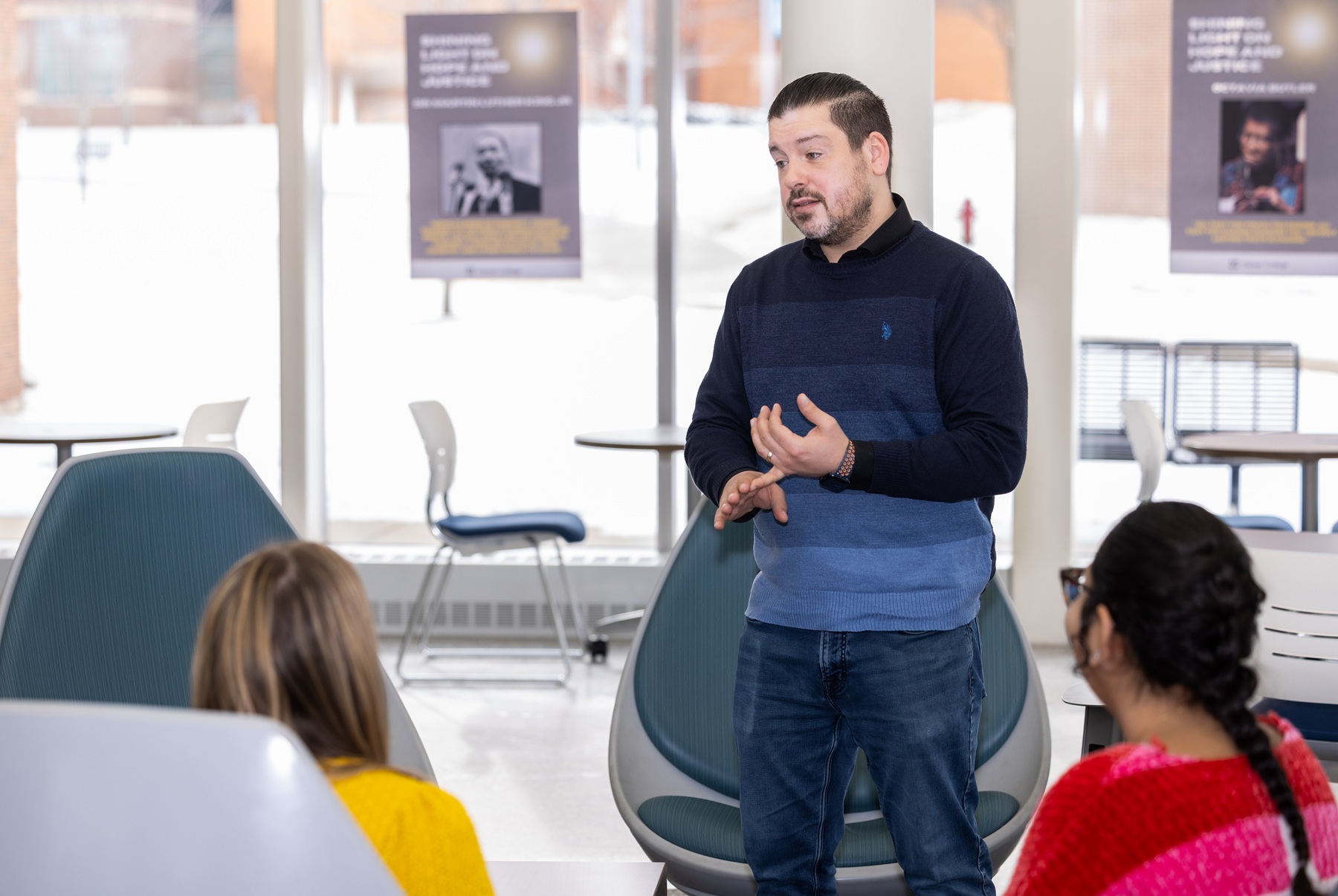
College can be tough. There’s classwork, homework and studying for important tests. For more than half of Harper College students, unmet basic needs can make academic success even harder. Approximately two-thirds of Harper students worry about having enough money to pay for school and 49% are housing insecure, according to the most recent data from the Trellis Student Financial Wellness Survey.
Harper students can count on the Hawks Care Resource Center and Counseling Services teams to lend a hand, and a listening ear.
Hawks Care – located in Building D, Room D204 – was founded in 2018. Staff help students manage personal challenges from housing and food insecurity to transportation and mental health.
Harper student Tina Coates says Hawks Care has been important to her success pursuing an Associate of Arts degree.
“Hawks Care’s staff listened to my concerns and gave me comfort during some very difficult times,” Coates said. “They provided that extra support I needed to make my life a little more manageable and gave me direction with some tough choices I had to make in my education. I’m so very grateful to them.”
She’s not alone. In the 2024-25 academic year, the center connected 765 students with campus and community resources to help them grow academically and achieve their goals. Hawks Care Manager Katie Butera said that more than 250 of those students returned from the previous academic year, which shows that Harper students see the benefits of connecting with the center.
“I think of what we do as a web or a net,” explained Counseling Services Manager Carol Trejo Kroeger. “We create this web of services to support all our students. Even if our office can’t help, we can connect them with someone on campus or a community partner who can.”
Getting to know people and what they need is the initial step. Students first meet with a resource specialist. They talk with them about their situation – at home, work, school or wherever they’re having trouble.
A case manager follows up on academics and connections to community organizations. They may connect a student to a community health center or to on-campus help like the Financial Aid or Access and Disability Services teams for more support.
“Meeting people’s basic needs is so important for them to be successful in school,” Butera explained. “They’re trying to focus in the classroom, but they may be worried about where they’re going to sleep tonight, how they’ll get to work or where their next meal will come from.”
Hawks Care offers many services to close gaps in a student’s support web. It starts with basic personal and family needs and expands to academic and professional support services.
“Often students think they know what they’re coming to us for. Then they dig in with an appointment and they find there can be other things underneath,” Butera said. “It’s like an iceberg.”
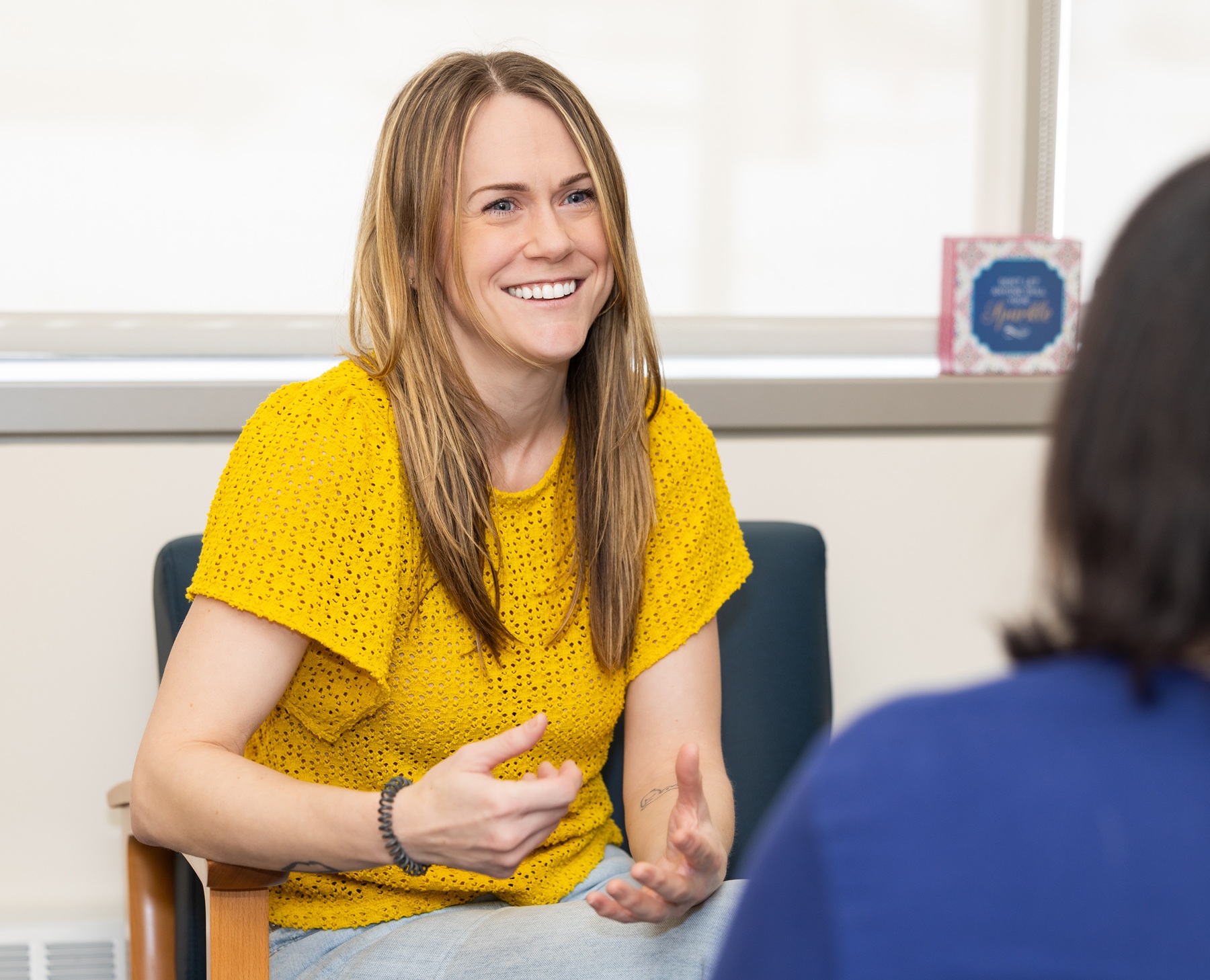
Harper College Counseling Services provide support to students in several formats, including one-on-one sessions, small groups and workshops. All enrolled, credit-seeking students over the age of 18 can participate in the free services, offered both in-person and virtually, and led by Harper’s clinical mental health therapists – one of whom is bicultural and bilingual in English and Spanish.
If you need someone to lean on for emotional support, call Lifeline. Talking with
someone can save your life. Dial 988 or 800.273.TALK (8255).Call Lifeline for emotional support
“Our goal is to support students in achieving their goals, whatever that looks like for them,” said Trejo Kroeger, who explained that 8-10 individual sessions per academic year are available to each student. If students need long-term support, therapists can refer them to a variety of community partners.
Services center on three main areas: Educational counseling, career counseling and personal counseling. With students avidly booking sessions with the department’s three therapists, Counseling Services has seen double-digit increases in 2025. The department is seeking to hire additional staff due to the interest demonstrated by students.
“I always say that mental health is health,” Trejo Kroeger said. “We are making sure Harper students can seek support in ways that are comfortable for them.”
Eddie Rajczyk, a 2025 graduate of the Surgical Technology program, said Counseling Services helped him stay on track in the classroom by addressing personal concerns.
“I was dealing with some issues that were more personal than academic,” he explained, “but I thought that if I didn’t address them, it might affect my grades.
“The counselor and I pretty much talked about anything and everything, inside and outside the classroom. Even though academics wasn’t my main reason for going to the center, I have no doubt our talks helped me de-stress a lot and helped me in the classroom.”
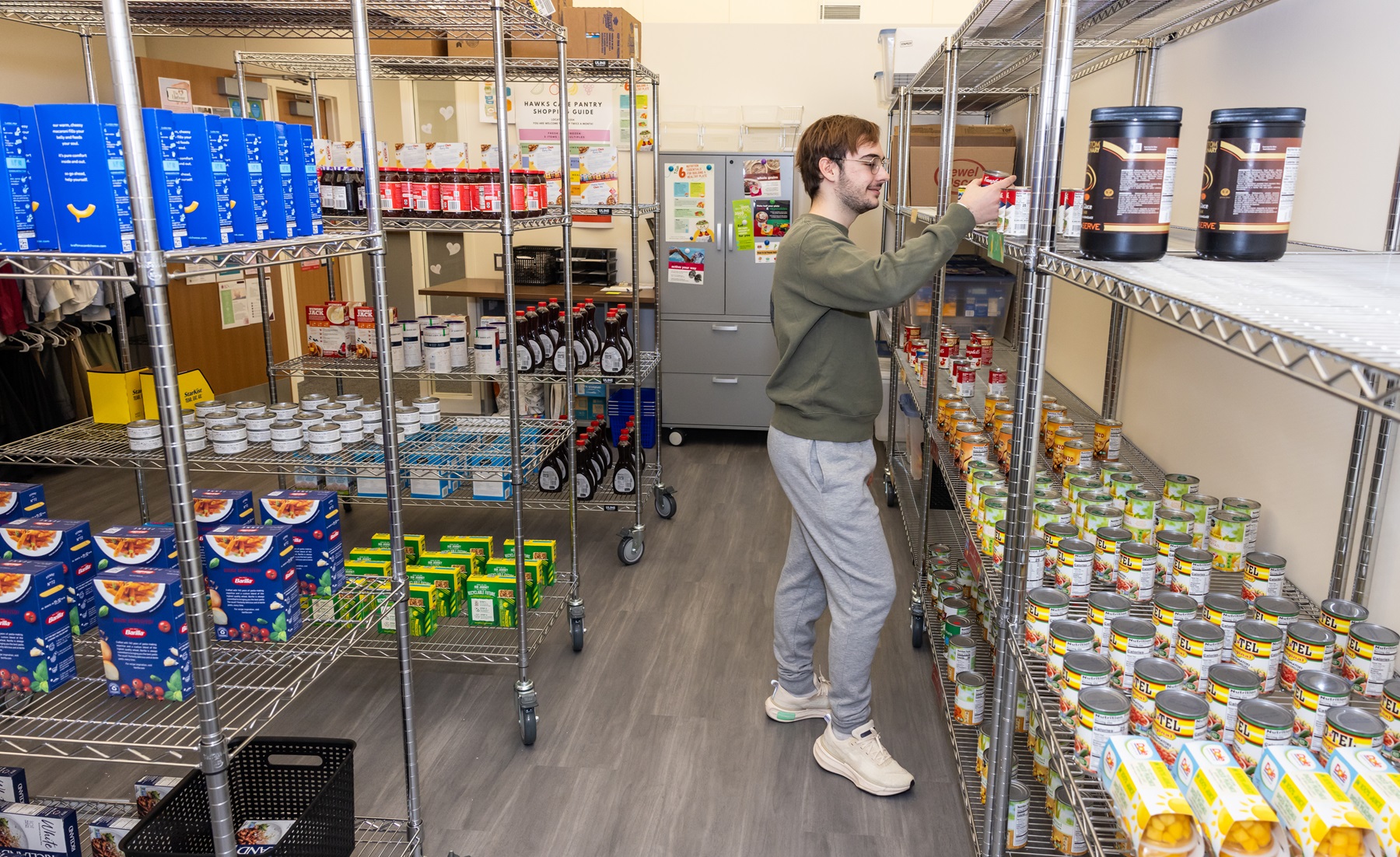
The Hawks Care Pantry provides food items and personal care essentials. These include grab-and-go foods and a kitchenette where students can prepare lunch and talk with center staff. The Harper Grows Community Garden contributes locally grown produce to the Hawks Care pantry during growing season, providing access to fresh options for cooking at home.
Through the Snacks for Students initiative, there are additional pop-up options in offices across campus and dinner-on-the-go choices for evening students at Hawks Care, Harper’s library and the Health and Recreation Center desk. Also, Hawks Care will soon launch a pantry partnership with the Greater Chicago Food Depository, joining a network of community pantries that will increase food item choice and support for students and their families.
“We encourage students to shop in the pantry to get what they need at the moment, and we’re also looking to connect them with other services in the community,” explained Trejo Kroeger. “We know that if our students are experiencing food insecurity their families probably are, and we want to support them too.”
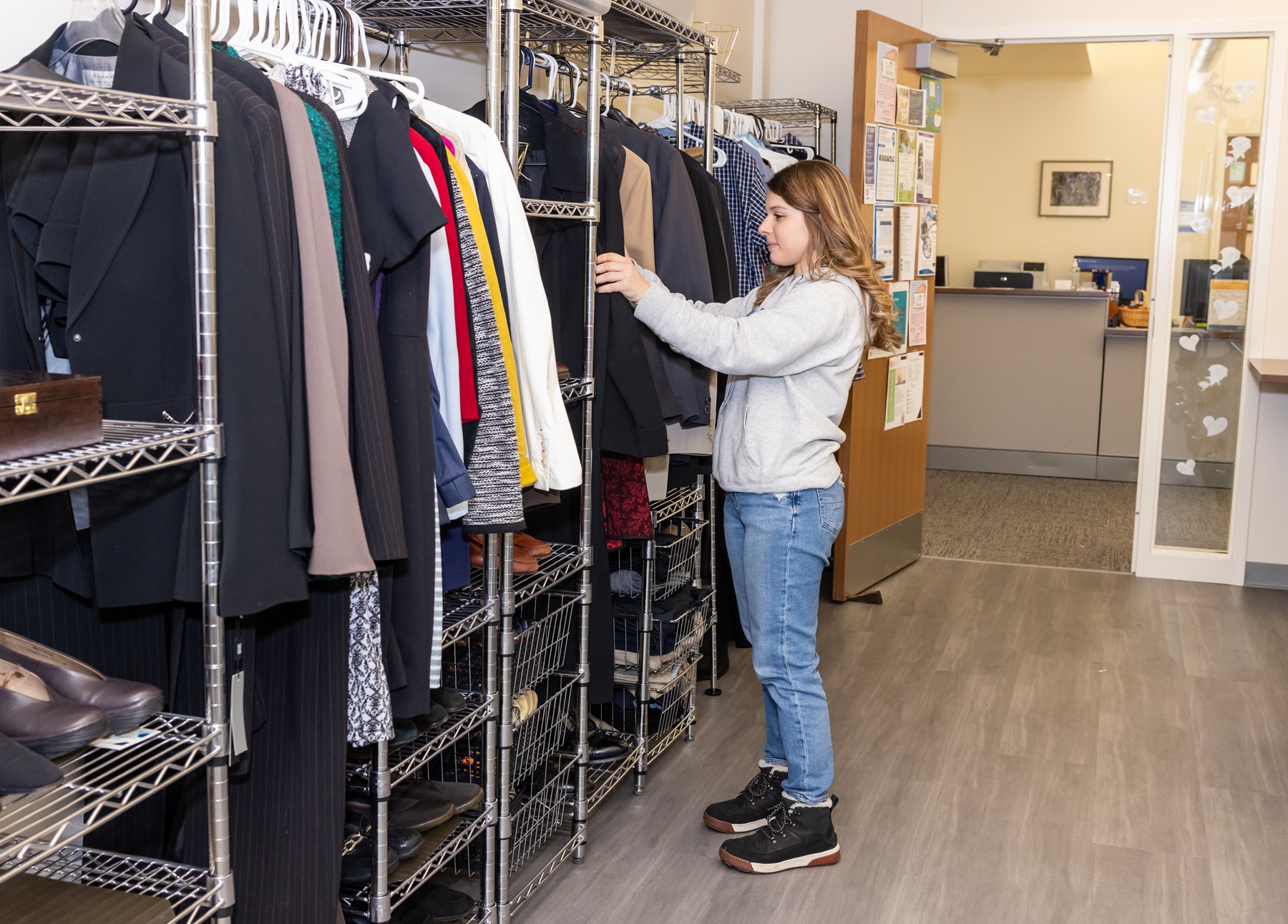
The Hawks Care Career Closet offers new and gently used work-ready clothes. Students – including those who have received a Harper credential within the past year – can shop for up to four pieces of clothing to help them prepare for job interviews, career fairs, networking events and the workplace. Students can keep the clothes.
“We want them to land the job, or nail that networking so they have a chance to use those clothes again,” Butera said.
Hawks Care staff connect students with local groups that offer personal and family services related to child care, domestic violence, health care, housing, immigration and mental health.
“We can help you with the small lens on campus, but we also want to get you connected to the organizations in your community to give you that big picture, especially when you have dependents and a family,” Butera said.
Child care assistance is available through Hawks Care, with support to help ease the burden on students with children. Student-parents can apply to participate in the Student Success Program, a federally funded subsidy program, or Family Forward, a guaranteed installment program.
The John and Rita Canning Harper College Women’s Program supports women enrolled at Harper with low incomes who are single parents, non-traditional career seekers, fleeing domestic violence or are pursuing English as a Second Language (ESL) coursework. Services include education planning and financial assistance.
Hawks Care also provides loaner laptops and limited Wi-Fi hot spots to Harper students with financial need and no access to technology. The Harper College Lyft Pass Program offers discounted rides for qualified Harper College students to help them get to or from one of Harper’s campuses.
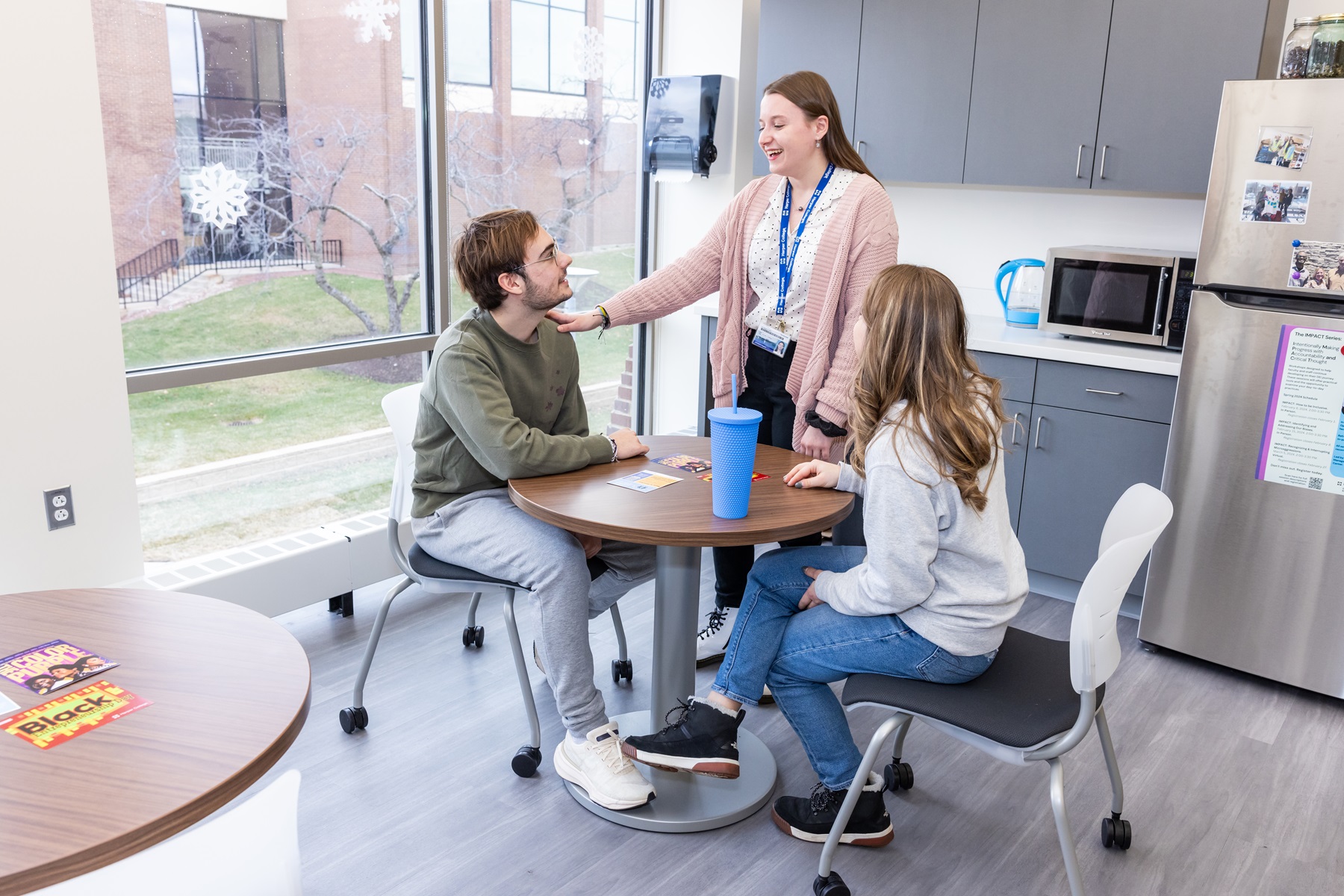
For Butera and Trejo Kroeger, their work with the Hawks Care Resource Center and Counseling Services is all about helping Harper students.
“Everything is so personalized to the student,” Butera said. “There isn’t a blanket formula for how to treat somebody, except that you have to get to know them. Everybody has a different story. It’s our job to help them achieve their own success.”
Trejo Kroeger agreed. “When we meet people’s basic needs, whether it’s food, housing, transportation, or mental and emotional health and wellness, we are setting them up to achieve their goals,” she said.
Need help? Contact Hawks Care or Counseling Services for support.